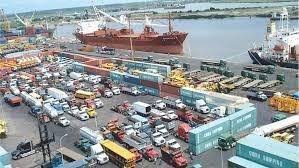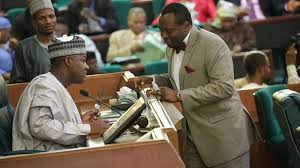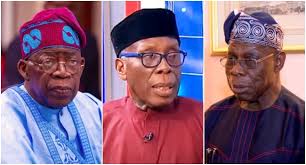Business
‘Money Outside Banking System Hurts Economy’
A lecturer with the
Nassarawa State University Prof Uche Uwaleke has said that money kept at home instead of the bank contributes to economic recession.
Uwaleke, Head, Banking and Finance of the university, made this known in a survey conducted by The Tide source on “Why prominent Nigerians keep money at home’’.
He said that in order to restart a general downturn in the business cycle, aggregate demand has to rise, and this would happen only when there was circular flow of income.
The lecturer said that the effects of keeping money outside the banking system had made commercial banks which perform financial intermediation functions handicapped to perform this crucial function.
”Also, the capacity of banks to create money and stimulate the economy is constrained as size of loanable funds is severely affected.
”Monetary policy is made more difficult for the Central Bank of Nigeria (CBN), when it has little or no control over money circulating outside the banking system.’’
Uwaleke told our source that people keep money at home to meet emergencies and precaution purposes.
According to him, in a cash-based economy like Nigeria, little amount of money can be kept at home.
”People keep money at home to meet emergencies.
”Also, cash is the most liquid asset and so easy access to cash and convenience could be a motivation for keeping some cash at home rather than having it in electronic cards.
”Impulse buying behaviour displayed in traffics as well as roadside purchase of ‘penny goods’ like groundnuts, sweets etc are made possible with ready cash in hand.
”Interestingly, there are those who keep some money at home to have something to placate armed robbers who would maim or even kill if they met a man at home and found nothing on him.
”Again, a man with questionable means of livelihood would rather shun the banks and keep proceeds of crime in his home,” he said.
Uwaleke further explained that some people had apathy for putting money in the bank.
He said this was common if the savings rate was too low to compensate for the time and inconvenience associated with opening and operating a savings account.
He, however, said the practice or natural disposition of people keeping money at home could be discouraged by opening more bank branches and improving access and efficiency in banking transactions.
The economist said it could also be discouraged by embarking on public enlightenment on the dangers of home savings and inculcating money and finance studies in basic education.
”Improvement in power, telecom and other support infrastructure for electronic payment systems and plugging public sector leakages and avenues for corruption is another measure,” he said.
Business
CBN Comptroller Warns Against Naira Sale

Business
Flight Distruption Looms, As Aviation Workers Prepare For Strike

Business
Freight Forwarders Raise Alarm Over Govt Reforms Sabotage

-

 Business3 days ago
Business3 days agoCBN Comptroller Warns Against Naira Sale
-

 Business3 days ago
Business3 days agoReal Estate GDP Contribution Surges To N41.3tn
-

 Politics3 days ago
Politics3 days ago2027: Nigerians Victims Of Desperate Politicians – Cleric
-

 Business3 days ago
Business3 days agoFreight Forwarders Raise Alarm Over Govt Reforms Sabotage
-

 Politics3 days ago
Politics3 days agoObasanjo, Tinubu Mourn Audu Ogbeh’s Death @78
-

 Maritime3 days ago
Maritime3 days agoMWUN, Police Parner In Safer Port Operations
-

 Maritime3 days ago
Maritime3 days agoNSC Hails MARAN’s Effords At Developing Maritime Sector
-

 Business3 days ago
Business3 days agoFlight Distruption Looms, As Aviation Workers Prepare For Strike

